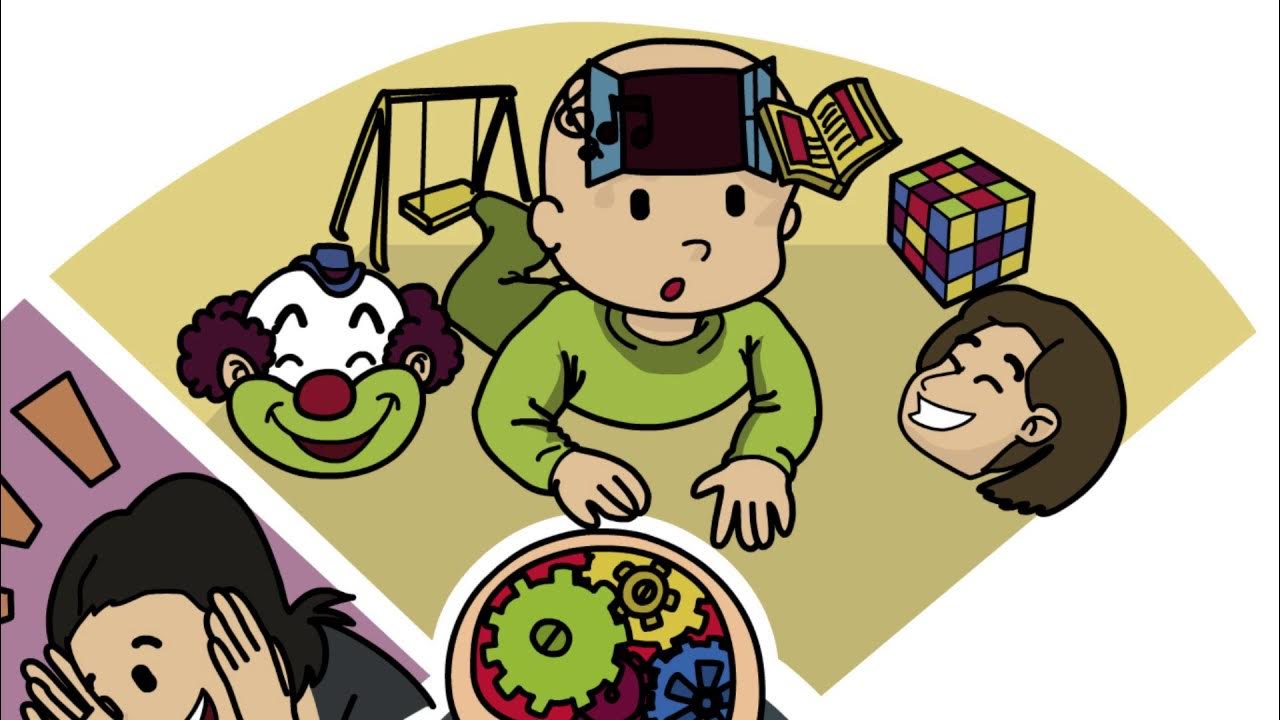HABILIDADES SOCIAIS NA INFÂNCIA • psicologia • Casule Saúde Mental
Summary
TLDRThis video explores the importance of social skills in childhood, emphasizing how family, school, and peer interactions contribute to a child's emotional development and academic success. Key skills such as emotional self-regulation, empathy, assertiveness, and problem-solving are highlighted, showing their role in fostering positive relationships and enhancing school performance. The video underscores that children with well-developed social skills tend to perform better academically and emotionally, with socialization providing a platform for acquiring new information and improving overall well-being.
Takeaways
- 😀 Social skills in childhood are crucial for positive interpersonal relationships with both adults and peers.
- 😀 The family, school, and peer groups are the main contexts that contribute to the development of social skills in children.
- 😀 A child’s social skills are linked to good adaptive functioning, including academic performance, responsibility, cooperation, and independence.
- 😀 Social skills help prevent childhood issues, such as problems in school performance.
- 😀 Children with better social skills tend to have higher academic performance due to good relationships with teachers, staff, and peers.
- 😀 Essential social skills include self-control, emotional expressiveness, and managing frustration and emotions.
- 😀 Sensitivity to social rules and norms, like greeting others or receiving compliments, is an important social skill.
- 😀 Assertiveness is a more advanced social skill that helps children adapt to different social contexts.
- 😀 Empathy, the ability to put oneself in another person's shoes, is an essential skill that children should learn.
- 😀 Skills like making friends, solving interpersonal problems, and academic skills significantly contribute to a child’s social development and academic success.
Q & A
What are the main contexts for the development of social skills in children?
-The main contexts for the development of social skills in children are family, school, and peer groups.
How do the roles of parents and caregivers contribute to the development of social skills in children?
-The roles of parents and caregivers are crucial, as their involvement significantly influences the development of social skills, given that childhood is a decisive period for learning these skills.
What is the meaning of 'mobilidade' in the context of social skills?
-'Mobilidade' refers to the quality of being skilled in something, in this case, the ability to navigate social situations and engage with others.
How does the development of social skills impact interpersonal relationships in children?
-The development of social skills positively influences interpersonal relationships by helping children interact well with both adults and peers, leading to better adaptation in social environments.
What correlation is observed between social skills and academic performance?
-Children with more developed social skills tend to have better academic performance, as strong interpersonal relationships within the school environment contribute to greater engagement and participation in class activities.
What are some examples of social skills that help children in school?
-Examples of social skills that help children in school include asking questions, participating in class, and engaging in activities proposed by the school.
What is emotional self-regulation, and how does it relate to social skills?
-Emotional self-regulation involves recognizing one's emotions, managing them, and tolerating frustration. It is a crucial social skill that helps children navigate emotional challenges in various contexts.
How does sensitivity function as a social skill in children?
-Sensitivity refers to recognizing and adhering to basic social rules, such as greeting others, offering compliments, and receiving praise. It helps children interact positively with their peers.
What is assertiveness, and why is it important for children?
-Assertiveness is a more sophisticated social skill that allows children to express themselves and adapt to different social contexts in a respectful and confident manner.
How does empathy influence children's ability to form social connections?
-Empathy, the ability to understand and share the feelings of others, is key for children to form meaningful connections with peers and adults. It helps children navigate social interactions with sensitivity and care.
Why is problem-solving in social contexts an important skill for children?
-Problem-solving in social contexts, such as resolving conflicts or making decisions during play, helps children navigate challenging situations and maintain positive relationships with others.
How do academic skills relate to social skills in children?
-Academic skills, such as attention and participation in class activities, are influenced by social skills. Children who have better social skills tend to perform better academically due to their ability to interact with teachers and classmates effectively.
Outlines

This section is available to paid users only. Please upgrade to access this part.
Upgrade NowMindmap

This section is available to paid users only. Please upgrade to access this part.
Upgrade NowKeywords

This section is available to paid users only. Please upgrade to access this part.
Upgrade NowHighlights

This section is available to paid users only. Please upgrade to access this part.
Upgrade NowTranscripts

This section is available to paid users only. Please upgrade to access this part.
Upgrade NowBrowse More Related Video
5.0 / 5 (0 votes)





